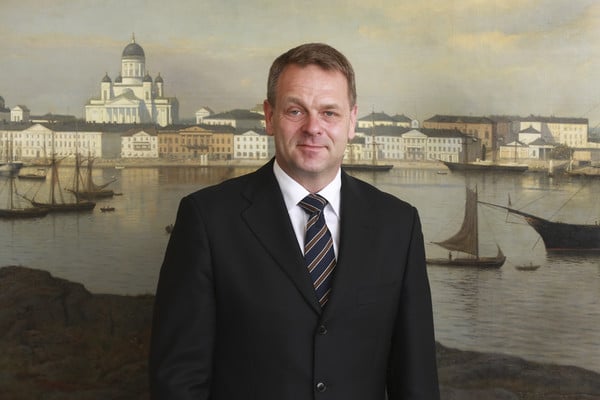
Helsinki launches €1 million sustainable energy prize
City to become a test bed for innovative heating solutions
The city of Helsinki, Finland, has launched a one million euro challenge to find sustainable city heating solutions to replace coal and biomass, with the aim of becoming carbon-neutral by 2035.
Coal, which currently supplies half the city’s heat has been banned from energy production in Finland from 2029. Biomass solutions (e.g. wood chip generation) have also been prohibited from entering the challenge as the city seeks to be ‘truly sustainable’.
Helsinki Mayor Jan Vapaavuori is urging innovators from around the world to propose game-changing solutions for the future of urban heating.
“Solving the urban heating challenge is crucial to reach global climate goals. Cities have a key role to play in the transition to a low carbon economy, and Helsinki is now taking an initiative to lead the way. We invite innovators from all around the world to use our city as a test bed to develop not just fossil free, but truly sustainable, solutions. Together, we will create the future of heating to fight global warming,” says Mr Vapaavuori.
The pathway to 2029
The goal of the challenge is to find solutions that can be implemented in Helsinki by 2029 and that potentially could contribute to decarbonising city heating around the world. The City of Helsinki is committed to openly sharing the solutions and knowhow gathered from the challenge.
Cities such as Toronto, Amsterdam, Vancouver, and Leeds as well as organisations like the World Economic Forum’s Global Future Council and C40 City Solutions Platform, are already supporting the initiative, to name a few.
“Climate change is a global crisis that will not be solved by quick fixes. With over half of the city’s heat coming from coal, we hope that our shift to sustainable energy can help inspire other cities and act as a real-life case that a transition is possible. Taking this next step might lead to a revolutionary breakthrough in our pursuit for a more sustainable city life,” says Mr Vapaavuori.
The scope of Helsinki’s existing heating system allows for a range of solutions, from large to small scale, but the ideal combination of solutions is yet to be found. The winning proposal could just as well include technological and business model innovations, as it could be a solution requiring system-level transformation.
Proposed solutions will be evaluated based on climate impact, impact on natural resources, cost, implementation schedule, implementation feasibility, reliability and security of supply, and capacity.
About the Helsinki Energy Challenge
The Helsinki Energy Challenge is a challenge competition, open globally to anyone who can propose a sustainable heating solution for Helsinki – consortiums, start-ups, larger and more established companies, research institutions, universities, research groups and individual experts. The only requirement is that participants should join the competition as a team.
The challenge is open for submissions until May 31, 2020. By early July, finalists will be invited to a co-creation phase, which includes a 3-day boot camp, where they are provided support to develop their proposals, before presenting them to an international jury of experts who will name the winner(s). The winning solution(s) will be presented in November and awarded with one million euros.
Find out more about the Helsinki Energy Challenge at: www.energychallenge.hel.fi
